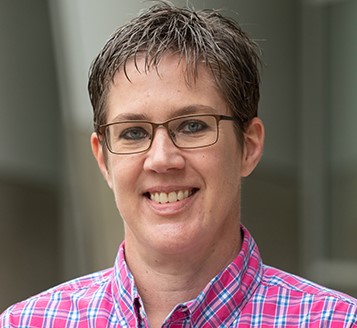Meet Cortney Turner, a Young Scientist in Our Depression Task Force (DTF) Labs,
June 27, 2022
Cortney Turner is an Associate Research Scientist in the lab of
DTF member Dr. Huda Akil, University of Michigan.
I became interested in depression research because of my own personal experience. At age 14, my freshmen year of high school, I was hospitalized with severe depression. It was 1991, and the psychiatrists didn’t really know how to help me. I was put on Prozac and other antidepressants, none of which helped me. I decided to dedicate my life to research and finding better predictors and treatments for depression, so that others don’t have to go through what I went through.
I grew up an only child in a trailer park in rural Ohio. My mother was a Type I diabetic, and my father is a Vietnam Veteran from Kentucky. I graduated Salutatorian and went on to attend Bowling Green State University, where I graduated Phi Beta Kappa with a dual-degree B.S. in biology and psychology. I earned a Ph.D. in Medical Sciences with a concentration in Neuroscience at the University of Florida.
For postdoctoral work, I happily ended up in the lab of Dr. Huda Akil at the University of Michigan. My research with Hope for Depression Research Foundation directly addresses the mental health crisis we see in youth, worsened by the pandemic. I focus on stress vulnerability and resilience in college freshmen; we’ve now collected data on three cohorts of students who have experienced the pandemic during their freshman year.
Overall levels of depression are higher in these freshman classes, but we also note a subset of students who appear resilient to the stress hits. We are analyzing a combination of genetic, physiological, psychological and behavioral data so we can better understand this resilience and how to promote it.
We are also creating predictive algorithms based on the data that can tell us who is more likely to develop anxiety or depression during this stressful time. The knowledge will be a catalyst for new ways to prevent and treat depression in these students, and in the population at large.


